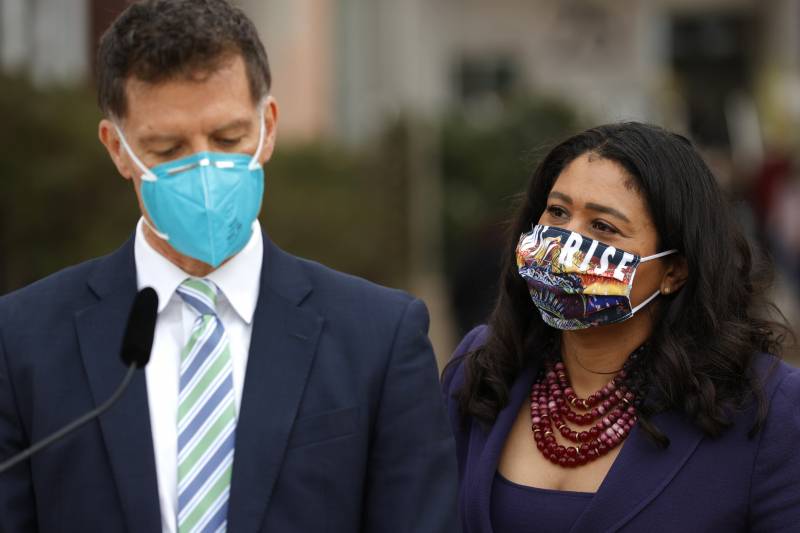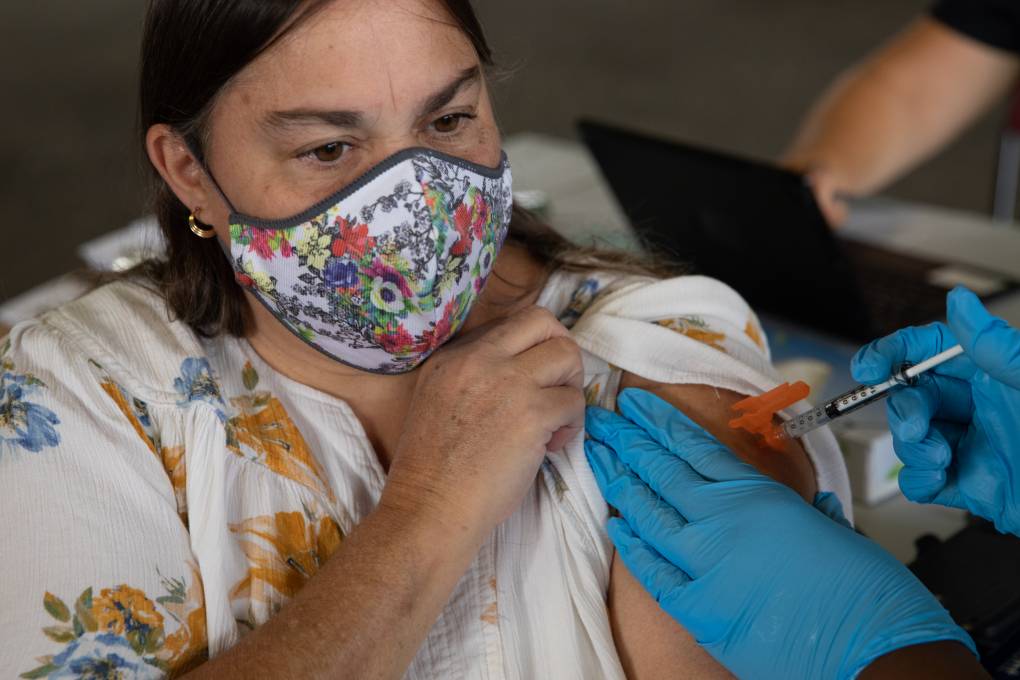With the number of new COVID-19 cases rapidly increasing once again, San Francisco is seeing its public services short-staffed, city officials said at a virtual press conference on Tuesday. The surge, directly linked to the omicron variant, has affected key city agencies, from Muni to the police department.
As of Tuesday, 167 police officers were reported to be in quarantine — that's roughly 8% of the city's police force. One hundred and thirty-five members of the fire department and 68 SFMTA employees also are isolating due to COVID-19 infections. And the United Educators of San Francisco (UESF) confirmed separately with KQED that 626 educators across the city's public schools called in sick on Tuesday.
Mayor London Breed said during the conference that the current challenge is keeping the city's workforce numbers up through the surge. But she stressed that public services will continue to operate as normal and that the city is not planning to impose any new restrictions on indoor dining, shopping or social events despite the uptick in cases.


